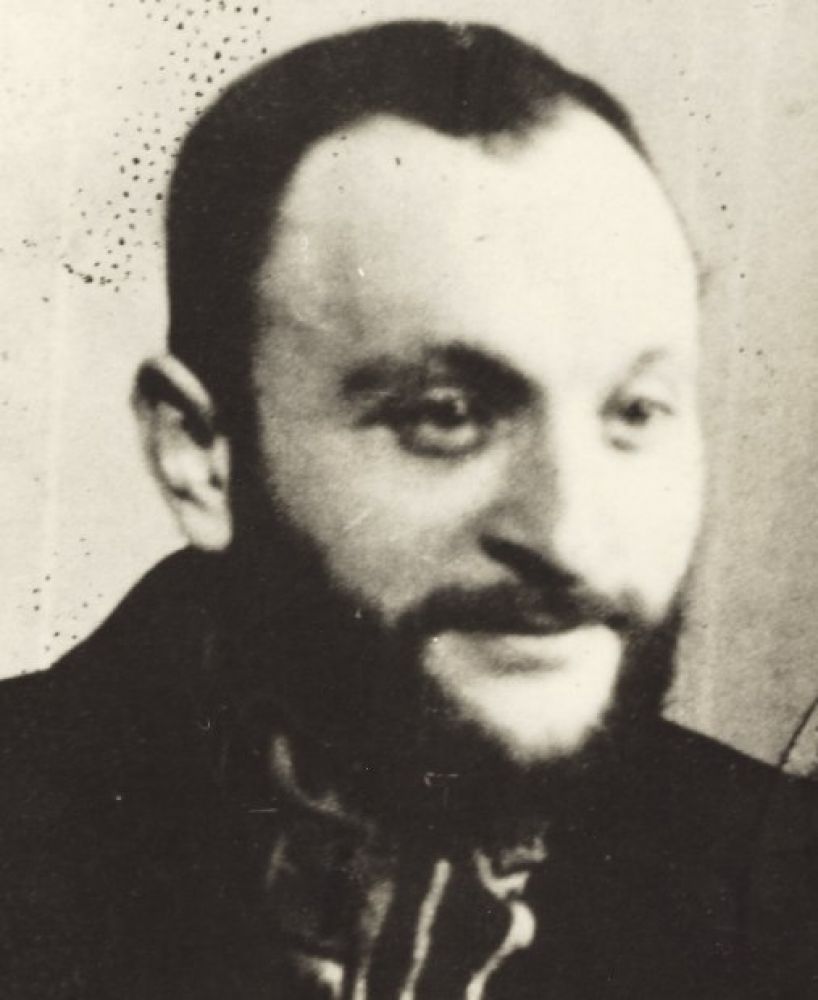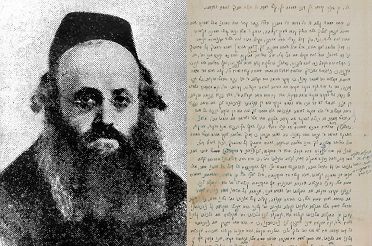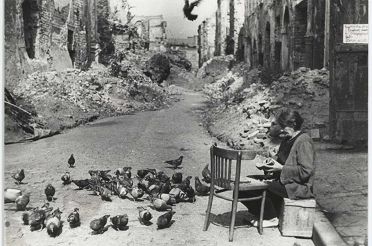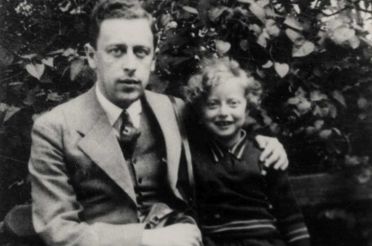Szymon Huberband was born in 1909 in Chęciny. He was brought up in the house of his grandfather, a tzadik, leader of the local Hassidic community. Though deeply religious, he never turned away from the secular world, maintaining contacts with non-orthodox Jews, publishing historical papers, and pursuing social work. When the war broke out, Huberband was with his family in Piotrków. His wife Ryfka and little son Kalmish were killed when fleeing the air-raided town Sulejów. He wrote in his Diary: Exactly eight days ago, our entire family left Piotrków. We had the crown of our family with us, my father-in-law. There was also my dear, beloved wife, who hardly anyone could equal in her intelligence, wisdom, kindness and nobility. I also had with me my dearest child, little illui Kalmishl. We took with us our belongings, jewellery, clothing and bedsheets. Now, after 8 days, we return, deprived of everything, our hearts bleeding.
![Relacja-768x952.jpg [121.28 KB]](https://www.jhi.pl/storage/image/core_files/2022/3/10/4f4d0d585703f9807673cc587bb9b2bc/jpg/jhi/preview/Relacja-768x952.jpg)
in 1941 by Szymon Huberband/ date: beginning of 1942 / source: Central Judaistic Library
Huberband came to Warsaw in 1940. He ran the religious section of the Jewish Social Self-Help. He renewed his acquaintance with Emanuel Ringelblum who recruited him for the Oneg Shabbat. For the Archive, Huberband drafted studies on religious life during the Holocaust, describing the demolition of synagogues and cemeteries and the persecution of religious Jews as well as ghetto folklore, Jewish life under Soviet occupation, and the plight of labor camp inmates. In the Archive he deposited, among other documents, a shocking personal account of forced labor for the SS. As one of the first associates of the Archive, Huberband was possibly an author or co-author of surveys useful in editing particular subjects included in the „Two and a half years of war” project.
![Dziennik-768x967.jpg [120.53 KB]](https://www.jhi.pl/storage/image/core_files/2022/3/10/11610a0f39d6163b79ce8f9d38458cae/jpg/jhi/preview/Dziennik-768x967.jpg)
Huberband’s writings are impressively complete, even though some of them had been written in extremely unfavourable conditions. As he stated himself, during the war, in the winter of 5702 [1941/1942], in very frosty weather. Due to lack of heating, the room was cold, there was no electricity, and a terminally in person stayed inside. He was writing in Yiddish, introducing words in Polish and Hebrew. Huberband’s language is quite simple, unsophisticated; he is trying to refer facts as precisely as possible.On August 18, 1942, Huberband and his second wife were taken to the Umschlagplatz, whence he was sent to the Treblinka extermination camp. Menachem Mendel Kohn remembered that only two hours earlier he had talked to him about his future texts for the Oneg Shabbat.
The Ringelblum Archive
Menachem Mendel Kohn, The Diary
18 VIII 1942 — Bloody Tuesday at the brush factory in EmilstadtAt 4 in the afternoon, on the same day, Jewish hunting dogs – the police – arrived at the workshop and began to arrest people allegedly older than 55 years old. Among them, there was also the author of these words (who miraculously escaped) (…) Among 1600 people exiled into death, there was also my best friend from Oneg Shabbat, 33-year old rabbi Huberband, and his wife. Many loved ones had been sent on that day into a horrific hell which Hitler’s murderers created at the Treblinka death camp.
Menachem Mendel Kohn, The memory of our beloved friend from „Oneg Szabat” rabbi Szymon Huberband
I believe that it is my sacred duty to write here everything I know about this crystalline person. (…) Human beings were always a priority for him. He respected his enemies, as long as they were honest with their beliefs. He despised falsehood. An expert on the Torah, with excellent knowledge of legal codes and rabbinical commentaries, a man strictly following religious orders, a zealous Hassid with a sincere heart and a reasonable mind. (…) Two years ago, when dr Ringelblum along with the author of these words founded an archive unit, called for political reasons „Oneg Shabbat”, rabbi Huberband became our most dedicated associate. (…) With full responsibility, I can state that our friend, rabbi Huberband, was one of the most beautiful people of our time. Dedicated to the archive work with his heart and soul; nothing was impossible for him. With great commitment, he worked day nd night. (…) All of us, your colleagues from „Oneg Shabbat” — we swear by everything that’s holy, that when the day of redemption comes, and we remain alive – we will take the bloodiest revenge for your blood. We will remember and honour you forever.
![Kohn_Pamięci.jpg [108.52 KB]](https://www.jhi.pl/storage/image/core_files/2022/3/10/16e45a983e877463da20b9256b3f21f8/jpg/jhi/preview/Kohn_Pamięci.jpg)
Emanuel Ringelblum, The Chronicle of the Warsaw Ghetto
In the first months of my work at Oneg Shabbat, I have attracted several associates, but with little results. Only with the arrival of young historian, rabbi Szymon Huberband, Oneg Shabbat gained one of its best associates.A man of noble character, rarely seen in our times. He was not only a great expert on religious literature, but also a promising historian. Huberband’s sketches on history of Jews in Poland proved his great erudition in this field. (…) Rabbi Huberband had made significant contributions to the documentation of Jewish life during the current war. The value of this documentation will be estimated once it’s made available to the masses. Only then we will learn about the achievements of rabbi Huberband.
Written by: Anna Majchrowska
Translated by: Olga Drenda
Source: „Pisma rabina Szymona Huberbanda”, opr. Anna Ciałowicz, Eleonora Bergman, tom 32, Wyd. ŻIH, Warszawa 2017.
„Pisma rabina Szymona Huberbanda” is also available on the Central Judaistic Library site.






![MKiDN_bialy_logotyp_strona_ŻIH_EN.png [10.32 KB]](https://www.jhi.pl/storage/image/core_files/2023/1/12/0fbb15388d1a5d89c65891b6ce66941c/png/jhi/preview/ZNAK%20ENG.png)